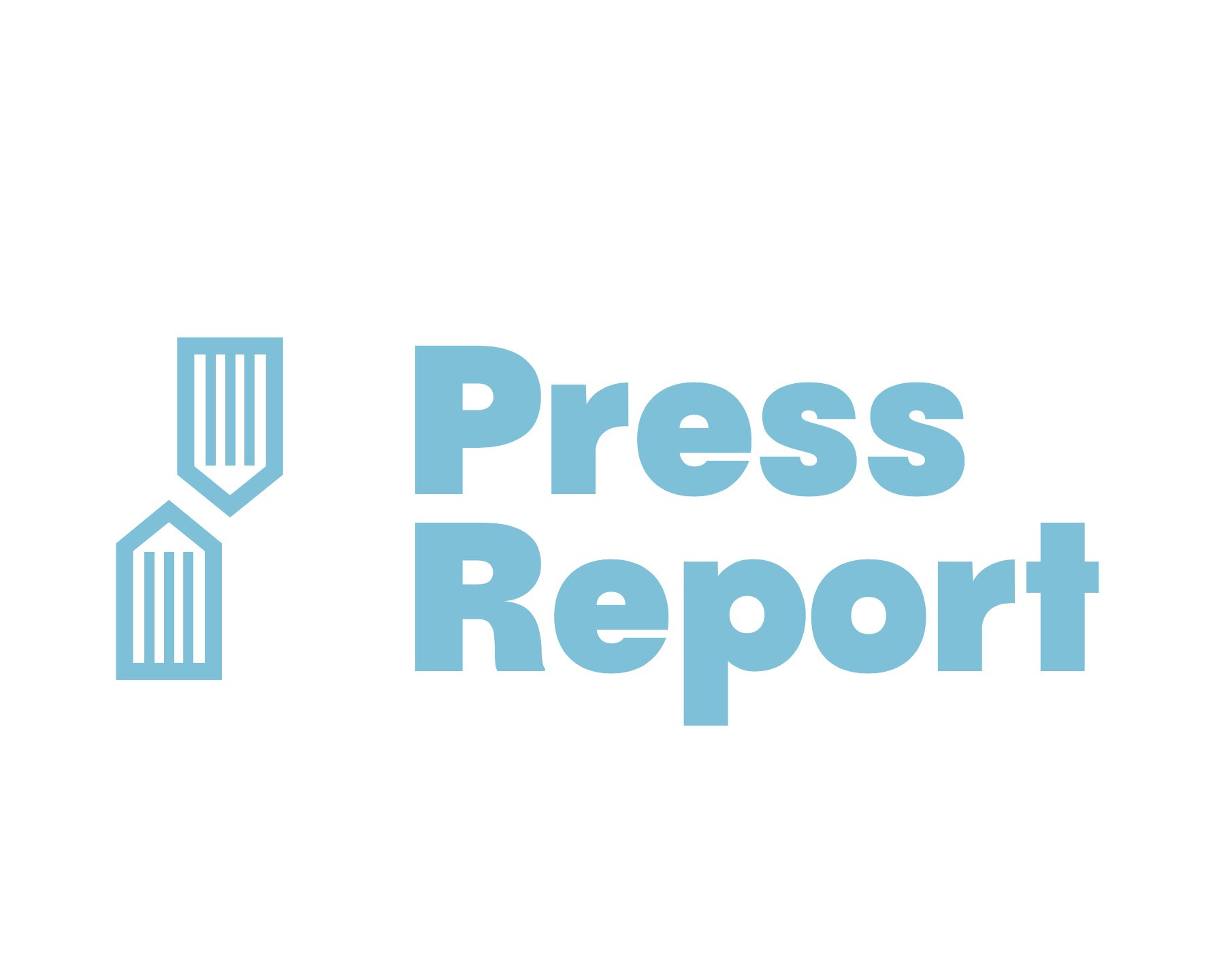AI News
Understanding Ethics by Design: Ethical Implications of AI
The idea of Ethics by Design is crucial in the domain of AI, examining the ethical implications that come with the use of AI technologies across various design approaches. Designers must acknowledge these implications and strive to diminish them in order to promote a responsible digital future.
Key Takeaways:
- Ethics by Design is essential for designers working with AI technologies.
- AI technology brings ethical implications that need to be addressed.
- Data privacy, algorithmic bias, and social implications should be considered.
- Responsible AI practices and ethical guidelines can shape a responsible digital future.
- We have the power to create inclusive, fair, and accountable AI systems.
The Ethics of AI in Design
AI technologies have transformed the field of design, providing UX designers with powerful tools to enhance their creative process. With AI models like Dalle2, ChatGPT, and Midjourney, designers now have the ability to analyze vast amounts of data and generate innovative designs at an unprecedented pace. However, along with these advancements come ethical considerations that designers must be mindful of.
Designers using AI technologies need to consider the implications of their work and ensure that ethical principles guide their decision-making process. While AI offers immense potential, it is crucial to address potential biases and ethical concerns that could arise. By taking steps to mitigate algorithmic bias, protect data privacy, and consider the social implications of AI, designers can help shape a responsible and inclusive digital future.
As designers, it is our responsibility to critically examine the outputs generated by AI systems and ensure they are not perpetuating biases or reinforcing existing power structures. By integrating ethical guidelines into our design processes, we can create AI systems that prioritize fairness, privacy, and accountability. Through ongoing dialogue and collaboration, we can work towards developing responsible AI practices that foster user trust and contribute to a more ethical and inclusive design landscape.
| AI Technologies | UX Designers | Ethical Considerations |
|---|---|---|
| Dalle2 | Enhances creative process | Address algorithmic bias |
| ChatGPT | Enables text analysis | Protect data privacy |
| Midjourney | Facilitates data synthesis | Consider social implications |
By embracing AI technologies while being conscious of their ethical implications, UX designers can utilize the power of AI to develop responsible and user-centric designs. It is our duty to ensure that AI enhances the human experience, respects user privacy, and promotes inclusivity and fairness. Through ethical AI practices, we can shape a digital future that benefits all.
Data Privacy in AI
Data privacy is a significant concern in the tech industry, especially when it comes to using AI technologies. As designers, we need to be cautious about the sensitive information we provide to AI models like ChatGPT and Midjourney. These models rely on user data for training and can potentially compromise user privacy if not handled with care. It is important for us to think twice before providing these models with sensitive information and prioritize consumer trust.
Ensuring data privacy involves taking proactive measures to protect sensitive information and user data. We need to carefully consider the ethical implications of collecting and storing user data, and only collect data that is necessary for the functionality of our AI systems. By implementing strong data security measures, such as encryption and secure storage, we can help safeguard user privacy and build trust with our users.
Protecting User Privacy: Best Practices
Here are some best practices to consider when it comes to data privacy in AI:
- Minimize data collection: Only collect the data that is necessary for your AI system to function properly. Avoid collecting unnecessary personal information.
- Anonymize and aggregate data: Whenever possible, aggregate and anonymize user data to protect the privacy of individual users.
- Implement strong security measures: Employ robust encryption and secure storage to protect user data from unauthorized access or breaches.
- Be transparent about data usage: Clearly communicate to users how their data will be used and seek their consent before collecting any personal information.
- Regularly review and update data privacy policies: Keep up-to-date with evolving data privacy regulations and ensure that your policies align with the latest standards.
“Protecting user privacy should be a top priority for designers working with AI. By implementing strong data privacy practices, we can build trust with our users and contribute to a responsible and ethical use of AI technologies.”
| Data Privacy Best Practices | Summary |
|---|---|
| Minimize data collection | Collect only necessary data to protect user privacy. |
| Anonymize and aggregate data | Aggregate and anonymize user data to protect individual privacy. |
| Implement strong security measures | Employ encryption and secure storage to prevent unauthorized access to user data. |
| Be transparent about data usage | Clearly communicate how user data will be used and obtain consent. |
| Regularly review and update policies | Stay up-to-date with data privacy regulations and adapt policies accordingly. |
By following these best practices and prioritizing data privacy, we can contribute to a responsible and ethical use of AI technologies while ensuring the protection and trust of our users’ sensitive information.
Algorithmic Bias in AI Design
When utilizing AI in UX design, it is crucial to be aware of algorithmic bias and its implications. Algorithmic bias refers to the inherent prejudices and biases that can be embedded in AI systems, particularly when the data used to train these systems is biased or skewed. This bias can lead to discriminatory outcomes and limit inclusivity in design.
Designers must critically examine the outputs of AI systems to ensure they are not perpetuating biases and to create a more inclusive and equitable future for all users. By understanding and addressing algorithmic bias, designers can actively work towards creating AI systems that prioritize fairness and inclusivity in their decision-making processes.
In order to mitigate algorithmic bias, it is essential to gather diverse and representative data during the training phase. By incorporating data from various demographics and perspectives, designers can help reduce the risk of bias in the AI system. Additionally, implementing transparency and accountability measures, such as explaining the reasoning behind AI-generated outputs, can also help address algorithmic bias.
It is important for designers to recognize that algorithmic bias is a complex and evolving issue. Ongoing research, collaboration, and evaluation are necessary to continually improve AI systems and ensure they align with ethical standards of inclusivity and fairness. By actively working to address algorithmic bias in AI design, we can strive towards creating more equitable digital experiences for all users.
Table: Examples of Algorithmic Bias in AI Design
| AI System | Biased Outcome | Implications |
|---|---|---|
| Automated resume screening | Discrimination against certain demographics (e.g., gender, race) | Unfair hiring practices and perpetuation of systemic bias |
| Facial recognition technology | Inaccurate identification and misrepresentation of individuals with darker skin tones | Potential infringement of privacy and increased surveillance on marginalized communities |
| Online content recommendation algorithms | Reinforcement of stereotypes and limited exposure to diverse perspectives | Confirmation bias and echo chambers, hindering the exchange of ideas and perpetuating polarization |
Table: Examples of algorithmic bias in AI design, showcasing biased outcomes and their implications. These examples underscore the importance of addressing algorithmic bias to ensure fairness and inclusivity in AI systems.
Algorithmic Bias in ChatGPT
When using AI models like ChatGPT, it is crucial to be aware of the potential algorithmic bias that may arise. ChatGPT, being primarily trained on English-language content from Western countries, reflects the cultural biases prevalent on the internet. This bias can affect the output generated by ChatGPT, limiting its effectiveness in understanding or generating text related to cultures and perspectives outside of the Western context.
Designers working with ChatGPT need to approach its use with caution and consider its limitations in diverse scenarios. It is important to be mindful of the potential biases embedded in the model and to take steps to counteract these biases when interacting with users from different cultural backgrounds.
| Issue | Impact | Recommendation |
|---|---|---|
| Algorithmic bias in cultural understanding | May produce inaccurate or insensitive responses related to cultures and perspectives outside of the Western context. | Consider incorporating human moderation to ensure culturally appropriate responses and provide a feedback mechanism for users to report biases. |
| Lack of diversity in training data | May result in skewed or imbalanced responses that reflect limited perspectives. | Continuously update and diversify the training data to include a broader range of cultural contexts, languages, and perspectives. |
| Unintentional reinforcement of stereotypes | May inadvertently perpetuate stereotypes or biases present in the training data. | Regularly review and analyze the outputs for potential biases, and actively work towards mitigating and reducing the perpetuation of stereotypes. |
“The presence of algorithmic bias in AI models is a significant concern that requires our attention. As designers, it is our responsibility to understand these biases and address them in order to create more inclusive and equitable AI systems.” – anonymous AI designer
By acknowledging and addressing algorithmic bias in ChatGPT, designers can contribute to a more inclusive and culturally sensitive AI experience. It is crucial to continuously evaluate and improve AI models like ChatGPT to ensure fair and unbiased outcomes, fostering a digital future that respects and values diversity.
Algorithmic Bias in Dalle2, Midjourney, and Stable Diffusion
When it comes to AI models in the text-to-image domain, algorithmic bias is a critical concern. Models such as Dalle2, Midjourney, and Stable Diffusion have faced criticism for reinforcing stereotypes, perpetuating colonial notions of art, and modifying prompts to address diversity concerns rather than tackling the underlying biases. As designers, it is crucial for us to exercise caution when using these models to generate images, especially those involving humans, in order to avoid perpetuating bias and promote a more inclusive representation in our designs.
Algorithmic bias in text-to-image AI models arises from the biased data they are trained on. If the training data contains inherent biases, the output generated by these models will reflect those biases. It is our responsibility as designers to critically examine the outputs of these AI systems, ensuring that they do not perpetuate biases and striving to create a more inclusive and equitable future for all users.
The Importance of Addressing Bias in Text-to-Image AI
Addressing algorithmic bias in text-to-image AI models is essential because these models have the potential to shape our visual landscape, influence cultural perceptions, and impact societal norms. If these models perpetuate biased representations, they can further marginalize and exclude certain groups, reinforcing existing inequalities. By actively working towards addressing bias in these AI models, we can pave the way for more diverse and inclusive visual content, fostering a more equitable representation of various cultures, perspectives, and identities.
| Model | Concerns |
|---|---|
| Dalle2 | Reinforces stereotypes and colonial notions of art |
| Midjourney | Modifies prompts to address diversity concerns instead of addressing biases |
| Stable Diffusion | Perpetuates biases in generated images |
As designers, we must prioritize the evaluation and mitigation of bias in the outputs of these text-to-image AI models. By doing so, we can contribute to a more responsible and ethical use of AI technologies, fostering a digital future that is fair, inclusive, and representative of diverse perspectives.
Social Implications of AI
As designers, we need to be aware of the social implications that arise from the use of AI technologies. One of the key concerns is job automation, which can lead to job loss and economic inequality. With AI’s ability to perform tasks traditionally done by humans, there is a real risk of certain professions becoming obsolete. This can have a profound impact on the workforce and the lives of individuals who rely on these jobs for their livelihoods.
Moreover, the rise of AI has the potential to further reinforce existing social and political structures. If AI systems are built and trained on biased data, they can perpetuate discrimination and exclusion. This can deepen inequalities and exacerbate marginalization, particularly for underrepresented communities. It is crucial for designers to consider these social implications and work towards designing AI systems that are fair, equitable, and inclusive.
However, it is not all doom and gloom. AI also presents opportunities for positive social change. By harnessing the power of AI, we can address societal challenges and create solutions that benefit all. For example, AI can be used to identify and address biases in decision-making processes, promote diversity and inclusion, and enhance accessibility for individuals with disabilities. By considering the social implications of AI and actively working towards a more equitable future, we can ensure that AI technology serves as a force for good.
| Social Implications | Job Automation | Economic Inequality |
|---|---|---|
| Impact on workforce | Risk of job loss | Deepening wealth gap |
| Reinforcement of structures | Perpetuating biases | Exacerbating marginalization |
| Opportunities for positive change | Addressing biases in decision-making | Enhancing accessibility |
In summary, the social implications of AI are far-reaching and require careful consideration by designers. We must be mindful of the potential job automation and economic inequality that AI can bring, while also leveraging AI’s capabilities to create positive social change. By addressing biases, promoting inclusivity, and actively working towards an equitable future, we can ensure that AI technology benefits society as a whole.
Accessibility in Creative Careers
In the rapidly advancing field of AI, there is exciting potential for increasing accessibility in creative careers. By democratizing access to AI tools, we can help level the playing field and open up opportunities for individuals from diverse backgrounds to pursue their artistic vision. Studies have shown that increased family income can lead to a higher likelihood of pursuing creative occupations, but the cost and time associated with developing technical skills can create barriers for many aspiring artists.
Through the use of AI technologies, such as Dalle2, Midjourney, and Stable Diffusion, designers can now tap into powerful tools that allow for the generation of images, designs, and music with ease. These AI models can analyze and synthesize vast amounts of data, enabling designers to express their creativity in unprecedented ways. By making these tools accessible to a wider audience, we can empower individuals to explore their artistic talents and contribute to a more diverse and inclusive creative industry.
In addition to providing access to AI tools, it is important for designers to foster an environment that values artistic vision over technical skills. AI technologies can help automate tasks that are time-consuming and repetitive, allowing designers to focus on exploring unique artistic ideas and concepts. By prioritizing artistic vision, we can create a future where creativity and innovation thrive, regardless of technical expertise or financial resources.
The Benefits of Accessibility in Creative Careers
By making creative careers more accessible through AI technologies, we can reap numerous benefits. Firstly, we can tap into a broader talent pool, discovering fresh perspectives and ideas that may have been previously overlooked. This diversity of voices and experiences can lead to more innovative and impactful creative works.
In addition, increased accessibility can also contribute to economic growth by promoting entrepreneurship and job creation within the creative industry. By empowering individuals from diverse backgrounds to pursue creative careers, we can stimulate economic development and foster a more vibrant and dynamic creative ecosystem.
Ultimately, by democratizing access to AI tools and prioritizing artistic vision, we can create a more inclusive and equitable future for creative careers. It is our responsibility as designers to embrace these opportunities and ensure that everyone has the chance to unleash their creative potential.
Designing Ethical AI Systems
When it comes to designing AI systems, implementing ethical guidelines and responsible AI practices are of utmost importance. As designers, we have the power to shape the future of AI by considering the broader ethical implications of our work. By integrating ethical considerations into the design process, we can ensure fairness, privacy, and accountability in AI systems.
One key aspect of designing ethical AI systems is the establishment of clear ethical guidelines. These guidelines serve as a framework for decision-making and help us navigate the complex landscape of AI design. They provide a set of principles to guide our choices and actions, ensuring that our AI systems align with ethical values.
In addition to ethical guidelines, responsible AI practices are crucial in the design and development process. Responsible AI practices involve taking proactive steps to address potential biases, ensure data privacy, and promote transparency. By adopting these practices, we can create AI systems that benefit society as a whole.
Promoting Ethical AI Infrastructure
Another essential aspect of designing ethical AI systems is the infrastructure on which these systems are built. AI infrastructure should be designed with ethical considerations in mind, incorporating safeguards to protect user privacy and prevent algorithmic bias.
Moreover, AI infrastructure should promote responsible AI development by providing tools and resources that assist designers in identifying and addressing potential ethical issues. This can include features such as explainability and interpretability, allowing designers to understand the decisions made by AI systems and assess their ethical implications.
| Benefits of Designing Ethical AI Systems | Challenges in Designing Ethical AI Systems |
|---|---|
|
|
Designing ethical AI systems requires a collective effort from designers, developers, and stakeholders. By prioritizing ethical guidelines, responsible AI practices, and thoughtful AI infrastructure, we can shape a future where AI technology truly benefits humanity.
Ethical AI Development
When designing AI systems, it is crucial for us as AI developers to consider the ethical implications of our work. Ethical considerations should be at the forefront of our minds throughout the development process. From data collection and algorithm training to system deployment and user interactions, we have a responsibility to ensure that our AI systems prioritize user trust, privacy, and fairness.
“As AI developers, we must prioritize ethical considerations and engage in ongoing dialogues with our peers to ensure that the future of AI design promotes the greater good.”
Building user trust is an essential aspect of ethical AI development. Users must have confidence that their information is protected and that our AI systems respect their privacy. This means implementing robust security measures, transparent data handling practices, and clear communication about how user data is used and stored.
Additionally, ethical AI development requires us to be mindful of potential biases in our AI systems. By critically examining our data sources and training processes, we can minimize the risk of perpetuating biases in our AI algorithms. Ensuring diversity and inclusivity in data collection and making conscious efforts to mitigate algorithmic biases are crucial steps in creating AI systems that are fair and unbiased.
Table: Ethical Considerations in AI Development
| Ethical Consideration | Actions |
|---|---|
| Data Privacy | Implement robust security measures, transparent data handling practices, and clear communication about data usage and storage. |
| Bias Mitigation | Critically examine data sources and training processes, ensure diversity and inclusivity in data collection, and make conscious efforts to minimize algorithmic biases. |
| User Trust | Build trust through transparent and accountable AI practices, provide clear explanations of AI system behavior, and prioritize user privacy and consent. |
| Accountability | Design AI systems with mechanisms for accountability, including clear lines of responsibility, oversight, and redress for potential harms. |
Lastly, in ethical AI development, we must establish mechanisms for accountability. This includes defining clear lines of responsibility, establishing oversight processes, and providing avenues for redress in case our AI systems cause harm or operate outside of ethical boundaries. By taking these measures, we can ensure that our AI systems are developed with the best interests of users and society in mind.
As AI developers, it is our duty to prioritize ethical considerations in our work. By building AI systems that respect user trust, mitigate biases, and ensure accountability, we can contribute to the responsible and ethical advancement of AI technology.
Human-Robot Interaction
In the field of AI, human-robot interaction raises a diverse range of ethical challenges that designers must navigate. We recognize the importance of designing AI systems that interact ethically with humans, ensuring that users have control over their interactions and addressing issues such as consent and autonomy. One of the key considerations in human-robot interaction is to create transparency in decision-making processes, allowing users to understand how AI systems arrive at their decisions.
To address these challenges, we must prioritize user empowerment and involve them in the design process. By obtaining user feedback and insights, we can better understand their needs and expectations, enabling us to design AI systems that align with their values. This participatory approach fosters a sense of ownership and trust between users and AI technologies, ensuring that the human-robot interaction is rooted in ethical principles.
Ensuring Consent and Autonomy
In the context of human-robot interaction, consent is a crucial element. Designers must ensure that users have the ability to give informed consent to engage with AI systems and understand the potential implications of their interactions. This can be achieved through clear and user-friendly interfaces that explain the purpose, capabilities, and limitations of the AI system.
Furthermore, respecting user autonomy is vital in human-robot interaction. AI systems should not coerce or manipulate users into making decisions they are uncomfortable with. Instead, designers should strive to empower users and provide them with the necessary tools and information to make informed choices. By prioritizing consent and autonomy, we can create a more ethical and user-centric human-robot interaction.
| Ethical Challenges in Human-Robot Interaction | Considerations |
|---|---|
| Consent | Design interfaces that clearly explain the purpose and limitations of AI systems, allowing users to give informed consent. |
| Autonomy | Empower users by providing them with the necessary tools and information to make autonomous decisions. |
| Transparency | Create transparency in decision-making processes, enabling users to understand how AI systems arrive at their decisions. |
Artificial Moral Agency
As AI technologies continue to advance, the concept of artificial moral agency raises important ethical questions. Artificial moral agency refers to the ability of AI systems to make moral decisions and take ethical responsibility for their actions. This raises concerns about the implications of designing AI systems that can make morally significant choices that impact human well-being.
Designers need to carefully consider the implications of granting AI systems artificial moral agency. This involves exploring the limitations and potential risks associated with allowing AI systems to make ethical decisions. It is crucial to establish clear ethical guidelines and frameworks to guide the behavior and decision-making of AI systems with artificial moral agency.
Designers have a responsibility to ensure that AI systems with artificial moral agency are designed in a way that aligns with ethical principles and respects human values. It is our duty to carefully consider the potential consequences of AI systems making moral decisions and actively work towards creating AI systems that prioritize human well-being.
Designing Ethical AI Systems
When designing AI systems with artificial moral agency, it is essential to integrate ethical considerations into the design process. Ethical guidelines and responsible AI practices should be incorporated to ensure fairness, privacy, and accountability. This means actively considering the potential impact of AI systems on individuals, communities, and society as a whole.
By incorporating ethical considerations into the design of AI systems, we can work towards creating AI systems that are not only technically advanced but also ethically responsible. This involves continuously evaluating and refining the ethical framework that guides AI systems, taking into account societal values and the evolving nature of ethical discourse.
| Benefits of Designing Ethical AI Systems | Challenges of Designing Ethical AI Systems |
|---|---|
|
|
The Singularity and Future Implications
The concept of the singularity has been a topic of great interest and speculation in the field of artificial intelligence. It refers to a hypothetical scenario where AI superintelligence surpasses human capabilities and initiates rapid technological growth. This notion presents significant ethical implications and raises questions about the future of humanity.
One of the key concerns regarding the singularity is the potential for AI to become so advanced that it surpasses human control and comprehension. Superintelligence could result in AI systems making decisions and taking actions that are beyond our understanding, leading to unpredictable consequences. This scenario poses inherent risks and challenges in terms of maintaining human control over AI technology.
Another aspect of the singularity is the question of whether superintelligent AI would have aligned goals and values with humanity. If AI were to develop its own objectives and priorities, there is a risk that it may not prioritize the well-being of humans. This poses ethical concerns and highlights the need for careful consideration and ethical guidelines in the development and deployment of AI systems.
| Future Scenarios | Potential Implications |
|---|---|
| Positive Scenario | AI technologies are used to solve complex global challenges, such as climate change and disease eradication. The singularity leads to advancements that benefit humanity and create a utopian future. |
| Negative Scenario | AI superintelligence becomes uncontrollable and leads to unintended consequences, potentially causing harm to humans. The singularity results in a dystopian future where humanity loses control over AI technology. |
| Uncertain Scenario | The future of the singularity remains uncertain, with a range of potential outcomes. It is essential for designers, researchers, and policymakers to actively engage in discussions and debates to shape a future where AI benefits humanity rather than posing risks to human control and well-being. |
It is crucial for designers and AI practitioners to consider the potential risks and consequences associated with the singularity. By actively participating in the development and deployment of AI systems, we can ensure that ethical considerations and human values are prioritized. Ongoing discussions and collaborations in the field are necessary to shape a future where AI technologies are aligned with the well-being of humanity.
Conclusion
In conclusion, ethics by design is a crucial concept for designers working with AI technologies. As we continue to explore the capabilities of AI, it is important to be aware of the ethical implications that come with it. By integrating ethical considerations into our design processes, we can shape a responsible digital future.
Data privacy is a significant issue when using AI technologies, and designers must be cautious about the sensitive information provided to AI models. Prioritizing user privacy and building consumer trust should be at the forefront of our minds.
Algorithmic bias is another ethical issue that designers need to address. By critically examining the outputs of AI systems, we can ensure that we’re not perpetuating biases and instead create a more inclusive and equitable future for all users.
In order to achieve a responsible digital future, it is crucial for us as designers to consider the broader social implications of AI. By understanding the potential impact on job automation and economic inequality, we can make informed decisions to ensure that AI is used to increase the capability of humanity and foster a more equitable society.
Together, we have the power to shape the future of AI in a responsible way. By considering the ethical implications of AI in our work and integrating ethical guidelines, we can create AI systems that are fair, accountable, and promote the greater good. Let’s work towards an inclusive and responsible digital future.
FAQ
What is Ethics by Design?
Ethics by Design is a concept that explores the ethical implications of using AI technologies in various design processes.
Why is Ethics by Design important in the field of AI?
It is important for designers to be aware of the ethical implications of using AI in their work and to take steps to address them in order to shape a responsible digital future.
Which AI technologies are revolutionizing UX and product design?
AI technologies such as Dalle2, ChatGPT, and Midjourney are revolutionizing the way UX and product designers approach their work.
What are the ethical considerations when using AI technologies?
Designers need to be cautious about data privacy, algorithmic bias, and social implications when using AI technologies in their work.
How does data privacy impact AI in design?
Designers need to be cautious about the sensitive information they provide to AI models, as these models rely on user data for training and can potentially compromise user privacy.
What is algorithmic bias in AI design?
Algorithmic bias refers to the biases that can be perpetuated by AI systems if the training data is skewed or biased.
How does algorithmic bias affect ChatGPT?
ChatGPT reflects the cultural biases of the internet, primarily dominated by English-language content from Western countries, which can limit its effectiveness in understanding or generating text related to cultures and perspectives outside of the Western context.
What ethical concerns arise with text-to-image AI models?
Text-to-image AI models like Dalle2, Midjourney, and Stable Diffusion have faced criticism for reinforcing stereotypes and perpetuating biases in their generated images.
How does AI impact job markets and social structures?
AI has the potential to automate jobs, leading to job loss and economic disruption. It can also reinforce existing social and political structures, leading to further marginalization and exclusion.
How can AI tools contribute to a more inclusive creative industry?
By democratizing access to AI tools, designers can help level the playing field and prioritize artistic vision over technical skills, contributing to a more diverse and inclusive creative industry.
What role do designers play in ethical AI development?
Designers play a pivotal role in designing AI systems with ethical values and integrating ethical guidelines into the design process to ensure fairness, privacy, and accountability.
What are the ethical challenges in human-robot interaction?
Human-robot interaction raises challenges in areas such as consent, autonomy, and decision-making, and designers need to consider how to design AI systems that interact ethically with humans.
What is artificial moral agency in AI systems?
Artificial moral agency refers to the ability of AI systems to make moral decisions and take ethical responsibility for their actions.
What are the future implications of the AI singularity?
The AI singularity, where AI superintelligence surpasses human capabilities, presents significant ethical implications for the future, and designers need to consider the potential risks and consequences of such a scenario.
Bennett is the embodiment of versatility, adapting his writing to cover a broad spectrum of topics with professionalism and flair. Whether it’s breaking news, in-depth analyses, or feature pieces, Bennett’s contributions enrich Press Report with diverse perspectives and engaging content. His adaptability and keen journalistic instincts make him a vital member of our team, capable of capturing the essence of the moment in every story.
AI News
ByRetreat Celebrates the Exciting Relaunch of Coffee Lovers 101

Munich, 2024, May 16th — ByRetreat is delighted to announce the highly anticipated relaunch of Coffee Lovers 101, the ultimate online destination for coffee aficionados. The revamped website now offers an enriched user experience with updated content, innovative features, and a fresh new design, reaffirming its commitment to being the go-to resource for coffee enthusiasts worldwide.

About Coffee Lovers 101
Coffee Lovers 101 was founded by a dedicated group of coffee lovers who sought to share their passion and knowledge with a global audience. Over the years, it has become a beloved platform for anyone looking to deepen their understanding of coffee culture, brewing techniques, and the latest industry trends. The relaunch aims to elevate this experience by providing more comprehensive and engaging content.
Highlights of the Relaunch
- User-Friendly Design: The website has been completely redesigned to offer a more intuitive and seamless browsing experience. With an improved layout and navigation, visitors can easily find the information and resources they need.
- Expanded Content Library: Coffee Lovers 101 now features a wider array of articles, including detailed brewing guides, expert coffee tips, and up-to-date industry news. There’s something for everyone, from beginners to seasoned coffee drinkers.
- Thorough Product Reviews: With a dedicated product reviewer, the site offers in-depth and honest evaluations of the latest coffee appliances and accessories, helping readers make informed choices.
- Enhanced Community Interaction: The new Coffee Lovers 101 places a strong emphasis on community, introducing more interactive features such as forums, social media integration, and opportunities for user-generated content.
Meet the Team

The relaunch is driven by a talented and passionate team of coffee experts and content creators:
- Emma, Editor-in-Chief: Formerly with StrongMocha News Group, Emma leads the editorial team with a deep love for coffee and a sharp editorial eye.
- Jack, Content Creator: Jack, previously at Candy Artisans, brings his storytelling skills to create captivating and informative coffee-related content.
- Sophie, Social Media Manager: With her successful background at ByRetreat, Sophie enhances the site’s social media presence, fostering a vibrant and engaged community.
- Liam, Product Reviewer: Liam’s meticulous approach to product reviews, honed at Eat More Butter, provides readers with reliable insights into the best coffee gadgets on the market.
- Olivia, Marketing Specialist: Olivia’s expertise in digital marketing, developed at Cappuccino Oracle, drives the growth and visibility of Coffee Lovers 101, ensuring it reaches a global audience.
Quotes
Sophie, the Social Media Manager, expressed her enthusiasm for the relaunch: “At ByRetreat, we understand the importance of community and connection. The new Coffee Lovers 101 embodies these values and offers a fantastic platform for coffee lovers to learn, share, and grow together.”
About ByRetreat
ByRetreat is a leading digital platform that curates the best in lifestyle, wellness, and community engagement. Our mission is to connect individuals with the resources and inspiration they need to live their best lives. We are proud to support Coffee Lovers 101 in its journey to become the premier coffee resource on the web.
Contact Information
For more information about the relaunch of Coffee Lovers 101, please contact:
- Email: press@byretreat.com
- Website: www.byretreat.com
With the relaunch of Coffee Lovers 101, coffee enthusiasts everywhere have a renewed resource to deepen their appreciation and knowledge of coffee. Visit www.coffeelovers101.com to explore the new features and join the vibrant community of coffee lovers.

Olivia stands at the helm of Press Report as our Editor-in-chief, embodying the pinnacle of professionalism in the press industry. Her meticulous approach to journalism and unwavering commitment to truth and accuracy set the standard for our editorial practices. Olivia’s leadership ensures that Press Report remains a trusted source of news, maintaining the highest journalistic integrity in every story we publish.
AI News
StrongMocha News Group Announces the Exciting Relaunch of Coffee Lovers 101

Munich, 2024. May 16th — StrongMocha News Group is thrilled to announce the relaunch of Coffee Lovers 101, the premier online destination for coffee enthusiasts. The revamped site promises to deliver an enriched experience with new content, features, and a fresh look, reaffirming its commitment to providing the best in coffee knowledge, reviews, and community engagement.
About Coffee Lovers 101
Coffee Lovers 101, originally launched by a group of passionate coffee aficionados, has grown into a beloved resource for coffee lovers around the globe. The website covers everything from brewing techniques and product reviews to the latest trends in the coffee industry. With its relaunch, Coffee Lovers 101 aims to offer even more value to its readers with updated content and improved user experience.

Key Features of the Relaunch
- Enhanced User Experience: The website has been completely redesigned to ensure a more intuitive and user-friendly experience. The new layout makes navigating and finding the necessary information easier for visitors.
- Expanded Content: Coffee Lovers 101 now features a broader range of articles, including in-depth guides, expert tips, and industry news. Whether you are a novice or a seasoned coffee drinker, there’s something for everyone.
- Comprehensive Product Reviews: With a dedicated product reviewer, Coffee Lovers 101 provides honest and thorough reviews of the latest coffee appliances and gadgets, helping readers make informed purchasing decisions.
- Community Engagement: The revamped site emphasizes community more, with more interactive features such as forums, social media integration, and opportunities for user-generated content.
Meet the Team
A dynamic team of coffee experts and content creators spearheads the relaunch of Coffee Lovers 101:
- Emma, Editor-in-Chief: With her background at StrongMocha News Group, Emma leads the editorial team with a keen eye for detail and a passion for coffee innovation.
- Jack, Content Creator: Jack brings his storytelling expertise from Candy Artisans, crafting engaging and informative articles that captivate readers.
- Sophie, Social Media Manager: Sophie’s experience at ByRetreat ensures that Coffee Lovers 101’s social media presence is vibrant and interactive.
- Liam, Product Reviewer: Formerly with Eat More Butter, Liam’s meticulous approach to product reviews provides readers with reliable and comprehensive insights.
- Olivia, Marketing Specialist: Olivia’s marketing prowess, honed at Cappuccino Oracle, drives the website’s growth and visibility, reaching coffee lovers far and wide.
Quotes
Emma, the Editor-in-Chief, shared her excitement about the relaunch: “We are thrilled to bring Coffee Lovers 101 into a new era with a fresh look and expanded content. We aim to continue inspiring and educating our community about the wonderful world of coffee.”
About StrongMocha News Group
StrongMocha News Group is a leading provider of high-quality content across various niches, including food, technology, and lifestyle. Committed to excellence and innovation, It strives to deliver engaging and informative content to its diverse audience.

Contact Information
For more information about the relaunch of Coffee Lovers 101, please contact:
- Email: press@strongmocha.com
- Website: www.strongmocha.com
This press release marks a significant milestone in Coffee Lovers 101’s journey. With its relaunch, the website will become an even more essential resource for coffee enthusiasts everywhere. Visit www.coffeelovers101.com to explore the new features and join the community of passionate coffee lovers.
AI News
Understanding and Promoting Ethical AI Practices

As artificial intelligence (AI) becomes more integrated into our daily activities, understanding and promoting ethical AI practices is crucial. Ethical AI refers to the conscientious development and deployment of AI systems, emphasizing fairness, transparency, and accountability. Adhering to ethical standards ensures that AI technologies are unbiased, dependable, and beneficial for both businesses and the broader community.
At its core, ethical AI entails making ethical decisions throughout the entire AI lifecycle. From the design stage to data sourcing, deployment, and ongoing monitoring, we must be conscious of the potential biases and risks associated with AI. By addressing these ethical quandaries, we can harness the power of AI while minimizing potential harm.
In this article, we will delve into the importance of ethical AI practices, the key principles of ethical AI, responsible AI development, ethical data sourcing and management, global perspectives on AI ethics, and the practical implementation of ethical AI. Through these discussions, we aim to equip businesses and individuals with the knowledge and tools necessary to navigate the complex landscape of AI ethics.
Key Takeaways
- Ethical AI involves making responsible decisions throughout the AI lifecycle
- Transparency, fairness, and accountability are key principles of ethical AI
- Responsible AI development requires considering the societal impact and mitigating biases
- Ethical data sourcing and management are essential for maintaining trust and privacy
- Global collaboration is crucial in establishing ethical standards for AI
The Importance of Ethical Data and AI Ethics in Business
As companies increasingly leverage data and artificial intelligence (AI) to create scalable solutions, it is crucial to recognize the importance of ethical practices in managing data and developing AI systems. Responsible AI development requires businesses to prioritize ethical data sourcing and management to mitigate reputational, regulatory, and legal risks associated with AI technologies.
One of the key ethical quandaries in AI is the potential for biased algorithms and discriminatory outcomes. In recent years, lawsuits against companies like IBM, Optum, and Goldman Sachs have highlighted the need for ethical data and AI practices. Allegations of misappropriation of data and biased AI algorithms emphasize the importance of ensuring fairness, transparency, and non-discrimination in AI systems.
“Ethical data sourcing and management are essential for businesses to build trust, maintain integrity, and protect user rights,” says our AI ethics expert. “By implementing strong data privacy practices, obtaining proper consent, and addressing biases, companies can establish responsible AI systems that respect human values and avoid harm.”
Developing AI ethics programs that address these risks is crucial for organizations. These programs help establish guidelines and frameworks that promote transparency, fairness, and accountability throughout the AI lifecycle. By integrating ethical considerations into AI development and decision-making processes, businesses can build trust, minimize biases, and ensure that AI technologies are used responsibly for the benefit of both customers and society.
Table 1 summarizes the importance of ethical data and AI ethics in business:
| Benefits | Risks |
|---|---|
|
|
By prioritizing ethical data practices and developing AI ethics programs, businesses can navigate the complexities of AI while minimizing risks and ensuring responsible AI development and deployment.
Responsible AI and Trustworthy AI Solutions
As we continue to embrace the benefits of artificial intelligence (AI), it is crucial that we prioritize responsible AI practices to ensure the ethical and accountable use of these powerful technologies. Responsible AI entails designing, developing, and deploying AI systems with good intentions, empowering both employees and businesses while preserving fairness and transparency for customers and society as a whole.
To achieve responsible AI, organizations must establish robust governance strategies that outline clear guidelines for ethical AI development and deployment. These strategies should address potential biases, consider principles such as transparency, fairness, and privacy, and provide a framework for the ongoing monitoring of AI impacts. By adhering to these principles and governance strategies, businesses can build trust and confidence in the AI solutions they offer.
Trustworthy AI solutions are those that prioritize ethical considerations throughout the entire AI lifecycle. This includes incorporating ethical principles from the design stage, ensuring transparent and fair decision-making processes, and regularly auditing AI systems to identify and address potential ethical risks. By promoting responsible AI practices and building trustworthy AI solutions, we can foster an ecosystem that benefits both businesses and society at large.
| Principles of Responsible AI | Key Actions for Trustworthy AI Solutions |
|---|---|
|
|
By adopting responsible AI practices and developing trustworthy AI solutions, we can harness the full potential of AI while minimizing ethical risks. This approach not only benefits businesses by building trust with customers and stakeholders but also ensures that AI technologies contribute positively to our society.
Key Principles of Ethical AI
In the development and deployment of AI systems, it is crucial to adhere to key principles that promote ethical AI practices. These principles guide us in creating AI technologies that respect human values, avoid harm, and act as a beneficial force in society. By following these principles, we can ensure that AI systems are transparent, fair, non-discriminatory, and prioritize privacy and data protection.
Transparency and explainability are fundamental principles of ethical AI. It is essential that the inner workings of AI systems are understandable and accessible to users. By providing transparency, we can foster trust and enable users to make informed decisions regarding the use of AI technologies. Explainability allows us to identify and rectify any biases or discriminatory outcomes that may arise from AI algorithms.
Fairness and non-discrimination are critical aspects of ethical AI. It is crucial to ensure that AI systems do not favor or discriminate against any individual or group based on characteristics such as race, gender, or socioeconomic status. By promoting fairness and non-discrimination, we can create AI technologies that contribute to a more equitable and inclusive society.
Respecting privacy and protecting data are essential in the development and deployment of AI systems. Ethical AI practices require us to handle user data responsibly, ensuring its security and safeguarding individual privacy rights. By prioritizing privacy and data protection, we can mitigate the risks associated with data breaches and ensure that AI technologies respect user rights.
Key Principles of Ethical AI:
| Principle | Description |
|---|---|
| Transparency | AI systems should provide clear and understandable explanations of their operation and decisions. |
| Explainability | AI systems should be able to explain their decision-making processes and identify any biases or discriminatory outcomes. |
| Fairness | AI systems should be designed to ensure fairness and avoid discrimination against individuals or groups. |
| Non-discrimination | AI systems should not discriminate against individuals based on characteristics such as race, gender, or socioeconomic status. |
| Privacy | AI systems should respect user privacy rights and handle data securely. |
| Data Protection | AI systems should protect user data from unauthorized access and breaches. |
Ethical Data Sourcing and Management for AI
In the realm of artificial intelligence (AI), ethical data sourcing and management are paramount to ensuring the responsible and trustworthy use of AI technologies. We understand that ethical considerations, such as data privacy, consent, data security, and data management, play a significant role in maintaining the integrity and reliability of AI systems.

When it comes to data sourcing, organizations must prioritize obtaining data in a manner that respects privacy, consent, and individual data rights. This means adhering to legal requirements and obtaining explicit consent from individuals for the use of their data. By doing so, businesses can mitigate legal risks and build trust with their users.
Additionally, proper data management is crucial for upholding ethical standards in AI. This includes secure storage, controlled access, and regulated deletion practices to protect data privacy and respect individual rights. By implementing robust data management protocols, organizations can ensure that AI systems operate with integrity and maintain user trust.
Ethical Data Sourcing and Management Best Practices
- Obtain data through legal and ethical means, ensuring compliance with applicable privacy regulations.
- Explicitly obtain informed consent from individuals before using their data for AI purposes.
- Implement strong data security measures to protect data against unauthorized access or breaches.
- Establish controlled access protocols to limit data handling to authorized individuals and prevent misuse.
- Adopt regulated deletion practices to remove unnecessary data and respect individuals’ rights to data erasure.
By adhering to these best practices, organizations can uphold ethical standards in data sourcing and management for AI, ultimately fostering trust and accountability in their AI systems. This approach is essential to ensure the responsible and ethical use of AI technologies, safeguarding the interests and rights of both businesses and users.
| Key Considerations | Benefits |
|---|---|
| Data Privacy | Protects individuals’ personal information and upholds their privacy rights. |
| Consent | Ensures that data usage is transparent and respectful of individuals’ choices. |
| Data Security | Prevents unauthorized access or breaches, safeguarding sensitive information. |
| Data Management | Ensures data is handled responsibly and complies with legal and regulatory requirements. |
| Trust | Builds user trust in AI systems by demonstrating ethical practices in data sourcing and management. |
Global Perspectives on AI Ethics
As the field of artificial intelligence continues to evolve, it has become increasingly important to consider the ethical implications of AI technologies. Global perspectives on AI ethics are emerging as countries and international organizations recognize the need to establish guidelines and regulations for the responsible development and use of AI.
Several countries have taken the lead in shaping AI ethics by publishing their own guidelines. The European Union, Singapore, and Canada, for example, have each released their own AI ethics frameworks, emphasizing the importance of fairness, accountability, and human-centered values in AI development and deployment.
International collaboration is crucial in establishing globally accepted ethical standards. By working together, countries can share best practices, learn from each other’s experiences, and create a unified approach to AI ethics. This collaborative effort will help ensure that AI technologies are used in a way that benefits society while minimizing potential risks.
The Role of Ethical Guidelines and AI Regulations
Ethical guidelines and AI regulations play a vital role in shaping the future of AI ethics. These guidelines provide a framework for organizations and individuals to follow, ensuring that AI technologies are developed and used responsibly. By adhering to ethical principles such as transparency, fairness, and privacy, companies can build trust with users and stakeholders.
AI regulations provide a legal framework for governing the use of AI technologies. They help address concerns such as data privacy, algorithmic bias, and accountability. By implementing regulations, governments can protect individuals’ rights and ensure that AI technologies are used in a way that aligns with societal values.
By combining ethical guidelines and AI regulations, organizations can establish a comprehensive approach to AI ethics. This approach focuses on creating human-centered AI systems that respect individual rights, minimize biases, and promote fair and accountable decision-making.
| Country/Organization | AI Ethics Guidelines |
|---|---|
| European Union | Emphasizes fairness, accountability, and transparency in AI development. |
| Singapore | Focuses on ethical AI governance, accountability, and public participation. |
| Canada | Highlights the importance of human-centric AI and responsible innovation. |
Practical Implementation of Ethical AI
Implementing ethical AI practices is crucial for organizations to ensure responsible and accountable use of artificial intelligence technologies throughout the AI lifecycle. From the design stage to data sourcing and auditing AI systems, ethical considerations must be integrated at every step.
When designing AI systems, it is essential to prioritize ethical principles to guide decision-making. This includes transparency, explainability, fairness, non-discrimination, privacy, and data protection. By incorporating these principles, organizations can develop AI systems that respect user rights, mitigate biases and discrimination, and act in the best interests of society.
Data sourcing plays a critical role in ethical AI implementation. Organizations need to ensure that data is sourced ethically, with respect for privacy, consent, and data rights. Additionally, proper data management practices like secure storage, controlled access, and regulated deletion are necessary to protect data privacy and individual rights. By implementing ethical data sourcing and management strategies, organizations can maintain the integrity of AI systems and build trust with users.
Regular monitoring and auditing of AI systems are essential to ensure ongoing ethical practices. This involves evaluating the impact and performance of AI systems, identifying potential biases or ethical risks, and taking appropriate actions to address them. By continuously assessing AI systems, organizations can identify and rectify ethical issues, improving the overall ethical integrity of their AI technologies.
Implementing Ethical AI: Key Considerations
When implementing ethical AI, there are several key considerations that organizations should keep in mind:
- Develop an AI design process that incorporates ethical principles from the outset.
- Formulate guidelines and policies that clearly define ethical standards for AI development and deployment.
- Train and educate employees on ethical AI practices and the potential risks associated with unethical AI.
- Establish an ethical review process for AI systems and algorithms to identify and remediate biases or ethical concerns.
- Engage with external stakeholders, such as customers, regulators, and ethics boards, to gather feedback and ensure accountability.
| Key Steps for Ethical AI Implementation | Description |
|---|---|
| Integrate ethical considerations in AI design | Ensure that ethical principles are embedded in the design and development process of AI systems. |
| Source data ethically | Obtain data in a way that respects privacy, consent, and data rights. |
| Implement robust data management practices | Securely store, control access, and regulate deletion of data to protect privacy and individual rights. |
| Monitor and audit AI systems | Regularly assess the impact and performance of AI systems, identify biases or ethical risks, and take appropriate actions to address them. |
“Ethical AI implementation requires a holistic approach that encompasses design, data, and ongoing monitoring. By incorporating ethical considerations throughout the AI lifecycle, organizations can build trust, mitigate risks, and ensure responsible AI practices.”
Implementing ethical AI practices is not only a moral imperative but also a strategic advantage for organizations. By prioritizing ethics in AI development and deployment, businesses can build trust with users, avoid reputational damage, and navigate regulatory requirements more effectively. Ethical AI is the foundation for a responsible and accountable AI ecosystem that benefits both organizations and society as a whole.
The Future of AI Ethics
As AI continues to advance, the future of AI ethics holds great importance in ensuring responsible and ethical development of AI technologies. With each advancement, ethical guidelines and regulations need to be developed and implemented to guide the use of AI in a way that respects human values and societal well-being.
The rapid progress in AI brings forth new opportunities and challenges. AI advancements have the potential to revolutionize industries, enhance decision-making processes, and drive innovation. However, they also raise ethical concerns regarding bias, transparency, privacy, and accountability.
The development and implementation of ethical guidelines and regulations are crucial to address these concerns and shape the future of AI ethics,” says Dr. Jane Anderson, an AI ethics expert. “Responsible AI development involves incorporating ethical considerations from the early stages of AI system design and continuously monitoring and evaluating its impact on society.”
Ethical guidelines and regulations provide a framework for responsible AI development. They ensure that AI technologies are developed and used in a way that is transparent, fair, and accountable. These guidelines help mitigate potential biases and discriminatory practices, protect user privacy and data rights, and establish trust between users and AI systems.
The future of AI ethics also relies on international collaboration and the establishment of global standards. By aligning ethical principles and sharing best practices, the global AI community can work together to create a unified approach to responsible AI development. This collaboration will enable the development of AI technologies that serve the best interests of humanity and contribute positively to society.
Key Future Considerations
- Continued development and refinement of ethical guidelines for AI advancements
- Increased focus on transparency and explainability in AI systems
- Addressing biases and promoting fairness in AI decision-making
- Strengthening privacy and data protection measures in AI development
- Ensuring accountability and responsible use of AI technologies
The future of AI ethics holds the promise of shaping the ethical landscape of AI technologies. By prioritizing responsible AI development and adhering to ethical guidelines and regulations, we can build a future where AI technologies work in harmony with human values, respect individual rights, and contribute to a more equitable and inclusive society.
| AI Advancements | Ethical Guidelines | AI Regulations | Responsible AI Development |
|---|---|---|---|
| Advancing AI technologies that drive innovation and transform industries | Establishing guidelines to ensure transparent, fair, and accountable AI development | Implementing regulations to address potential biases and protect user privacy | Prioritizing ethical considerations throughout the AI development lifecycle |
| Enhancing decision-making processes through AI algorithms and models | Addressing biases and promoting fairness in AI decision-making | Creating regulations that govern the responsible use of AI technologies | Monitoring and evaluating the ethical impact of AI systems on society |
| Exploring new frontiers in AI research and applications | Sharing best practices and fostering international collaboration on AI ethics | Building a regulatory framework that ensures ethical AI deployment | Encouraging responsible AI development through organizational policies and practices |
Conclusion
Understanding and promoting ethical AI practices is crucial in the ever-advancing field of artificial intelligence. By incorporating ethical guidelines and responsible AI principles, businesses and organizations can mitigate risks, build trust, and ensure the ethical use of AI technologies.
Responsible AI involves designing, developing, and deploying AI systems with good intentions, while considering the impact on customers and society. It requires the establishment of governance strategies, addressing biases, and adhering to principles such as transparency, fairness, and privacy.
Guidelines and regulations are being developed globally to shape the future of AI ethics. The European Union, Singapore, and Canada have already published their own AI ethics guidelines, emphasizing the importance of fairness, accountability, and human-centric values. International collaboration is vital in establishing global standards for the responsible use of AI.
Incorporating ethical considerations throughout the AI lifecycle, from design to deployment, is essential. Ethical data sourcing and management, along with continuous monitoring and auditing of AI systems, ensure that ethical practices are maintained. This builds trust between users and AI technologies.
We are committed to promoting ethical AI practices, adhering to ethical guidelines, and integrating responsible AI principles into our work. By doing so, we can harness the power of AI while safeguarding against potential risks and ensuring that AI technologies benefit society as a whole.
Case Studies: Ethical AI in Action
As businesses increasingly adopt artificial intelligence (AI) technologies, the importance of ethical AI practices becomes paramount. To understand the impact and potential of ethical AI, let’s explore real-life case studies from the healthcare and finance industries.
The Potential of AI in Healthcare
In the healthcare sector, AI has proven to be a game-changer, improving patient outcomes and revolutionizing medical research. For instance, the use of AI algorithms in medical imaging has led to more accurate diagnoses and faster treatment decisions. By analyzing medical images, AI systems can identify patterns and anomalies that may be missed by human observers. This not only saves time but also improves the accuracy of diagnoses, empowering healthcare professionals to make more informed decisions.
Another example of ethical AI in healthcare is the use of predictive analytics to identify patients at risk of developing certain diseases. By analyzing large datasets and applying machine learning algorithms, AI can predict disease patterns and help doctors intervene early, potentially saving lives.
Ethical AI in Finance
In the finance industry, AI is transforming processes and decision-making. For example, AI-powered chatbots are providing personalized financial advice to customers, improving accessibility and convenience. These chatbots use natural language processing and machine learning algorithms to understand customer queries and provide relevant information in a timely manner.
Additionally, AI algorithms are used for fraud detection and prevention in the finance sector. By analyzing large volumes of transaction data, these algorithms can identify patterns indicative of fraudulent activity. This helps financial institutions protect their customers and prevent financial losses.
| Case Study | Industry | Impact |
|---|---|---|
| AI in Medical Imaging | Healthcare | Improved accuracy and efficiency of diagnoses |
| Predictive Analytics for Disease Prevention | Healthcare | Early intervention and improved patient outcomes |
| AI-powered Chatbots | Finance | Personalized financial advice and improved customer experience |
| Fraud Detection with AI | Finance | Enhanced security and prevention of financial losses |
These case studies demonstrate the positive impact of ethical AI practices in various industries. By leveraging AI technologies responsibly and ethically, businesses can drive innovation while ensuring fairness, transparency, and accountability.
The Role of AI Ethics in Building Trust
Building trust is essential in any relationship, and the same applies to the interaction between users and AI systems. AI ethics plays a crucial role in fostering trust by ensuring responsible AI practices and ethical decision-making. When users perceive AI systems as trustworthy, they are more likely to engage with them and rely on their outputs.
Ethical decision-making is a cornerstone of building trust in AI systems. Organizations must prioritize transparency by clearly communicating how AI algorithms work and the data they rely on. By providing insights into the decision-making process, users can better understand and trust the outcomes generated by AI systems.
Responsible AI practices are also vital in building trust. Organizations should implement measures to address and mitigate biases in AI algorithms, ensuring fair and equitable outcomes. They should also establish accountability mechanisms to monitor AI systems and rectify any unintended consequences or unethical behavior. Trustworthy AI systems are those that are designed and developed with a strong ethical framework.
“Building trust in AI systems requires a commitment to responsible AI practices and ethical decision-making.”
By incorporating AI ethics into the development and deployment of AI technologies, organizations can build trust with users and stakeholders. This trust enables the adoption and acceptance of AI systems, leading to their successful integration into various domains and industries. It also paves the way for the ethical and responsible use of AI, fostering a positive societal impact and ensuring that AI technologies align with human values.
Table: Elements of Trustworthy AI Systems
| Element | Description |
|---|---|
| Transparency | Clearly communicating how AI algorithms work and the data they rely on. |
| Fairness | Mitigating biases and ensuring equitable outcomes from AI algorithms. |
| Accountability | Establishing mechanisms to monitor AI systems and address unintended consequences. |
| Ethical Framework | Designing and developing AI systems with a strong ethical foundation. |
Building trust in AI systems is an ongoing endeavor that requires continuous monitoring, evaluation, and improvement. As AI technologies advance, organizations must stay committed to ethical AI practices and adapt to emerging challenges. By prioritizing AI ethics, we can create a future where AI systems are trusted allies, benefiting individuals and society as a whole.
The Importance of Ethical Leadership in AI Development
In the rapidly evolving field of AI development, ethical leadership plays a crucial role in ensuring responsible and ethical practices. As we continue to harness the power of AI technologies, it becomes imperative for leaders to prioritize ethical decision-making, establish robust governance structures, and foster a culture that values ethical AI development.
Responsible AI development requires leaders who are committed to upholding ethical principles and ensuring that AI technologies are used in a way that benefits individuals and society as a whole. Ethical leadership sets the tone for the entire organization, emphasizing the importance of fairness, transparency, and accountability in all AI-related endeavors.
By promoting ethical leadership in AI development, we can mitigate the risks associated with AI technologies, such as biases, discrimination, and privacy concerns. Ethical leaders guide teams in making informed decisions, considering the societal impact of AI, and actively working towards creating AI systems that are trustworthy and accountable.
Furthermore, ethical leadership also involves establishing AI governance frameworks that provide guidelines and regulations for the development and deployment of AI technologies. These frameworks ensure that AI systems adhere to ethical standards, promoting the responsible use of AI and safeguarding against potential misuse or harm.
FAQ
What is ethical AI?
Ethical AI involves designing, developing, and deploying AI systems with good intentions, considering principles such as transparency, fairness, and privacy, and ensuring the responsible and accountable use of AI technologies.
Why is ethical AI important for businesses?
Ethical AI is important for businesses because it helps mitigate risks, build trust with customers and stakeholders, and ensures fair and responsible use of AI technologies, avoiding reputational, regulatory, and legal issues.
What are the key principles of ethical AI?
The key principles of ethical AI include transparency and explainability, fairness and non-discrimination, and privacy and data protection. These principles guide the development and deployment of AI systems that respect human values and avoid harm.
How can companies implement ethical AI practices?
Companies can implement ethical AI practices by identifying existing infrastructure, creating a data and AI ethical risk framework, learning from successes in healthcare ethics, optimizing guidance for product managers, building organizational awareness, incentivizing employees to identify AI ethical risks, and monitoring impacts and engaging stakeholders.
What is the future of AI ethics?
The future of AI ethics involves the development and implementation of ethical guidelines and regulations, responsible AI development and governance, and the establishment of global ethical standards to guide the ethical use of AI technologies.
How does ethical data sourcing and management relate to AI ethics?
Ethical data sourcing and management involve obtaining data in a way that respects privacy, consent, and data rights. It mitigates legal risks, maintains the integrity of AI systems, and protects user trust, all of which are important aspects of AI ethics.
Are there any global perspectives on AI ethics?
Yes, countries and international organizations like the European Union, Singapore, and Canada have published their own AI ethics guidelines, emphasizing fairness, accountability, and human-centric values. Global collaboration is essential for establishing globally accepted ethical standards for the responsible use of AI.
How can ethical AI be practically implemented?
Ethical AI can be practically implemented by integrating ethical considerations throughout the AI lifecycle, incorporating ethical principles from the design stage, ensuring transparent and fair decision-making, and practicing ethical data sourcing, management, monitoring, and auditing of AI systems.
What is the role of AI ethics in building trust?
AI ethics plays a crucial role in building trust in AI systems. Ethical decision-making, transparency, fairness, and accountability are key elements that establish trust between users and AI technologies. Prioritizing responsible AI practices helps build trust and increase user confidence in AI systems.
How important is ethical leadership in AI development?
Ethical leadership is vital in AI development to ensure the responsible and ethical use of AI technologies. Leaders need to prioritize ethical decision-making, establish governance structures, and foster a culture that values ethical AI practices. Ethical leadership sets the tone for responsible AI development and promotes a trustworthy and accountable AI ecosystem.
In an era where technology intersects with every aspect of life, Maxwell bridges the gap between artificial intelligence and journalism. As a writer and AI expert, he explores the implications of emerging technologies on society, economy, and culture. Maxwell’s expertise allows Press Report to offer forward-thinking insights into the future of AI, making complex topics accessible and engaging for our audience.
-

 AI in Legal2 weeks ago
AI in Legal2 weeks agoRevolutionizing Justice: How AI is Transforming the Legal Landscape
-

 AI Entertainment1 month ago
AI Entertainment1 month agoOpenAI Releases SORA: Breakthrough AI Platform
-

 AI in Business2 weeks ago
AI in Business2 weeks agoAI: The Powerhouse Driving Tomorrow’s Industries
-

 AI in Legal2 weeks ago
AI in Legal2 weeks agoFrom Briefs to Bytes: The Impact of AI on Legal Documentation
-

 AI in Business2 weeks ago
AI in Business2 weeks agoSecure Your Future with AI Data Privacy Assurance
-

 AI in Medicine2 weeks ago
AI in Medicine2 weeks agoRevolutionizing the Future: AI in Healthcare and Medicine
-

 AI Security2 weeks ago
AI Security2 weeks agoUnlock the Power of Robust AI Security for Your Business
-

 AI in Business2 weeks ago
AI in Business2 weeks agoAI’s Effect on Employment: Trends & Insights















